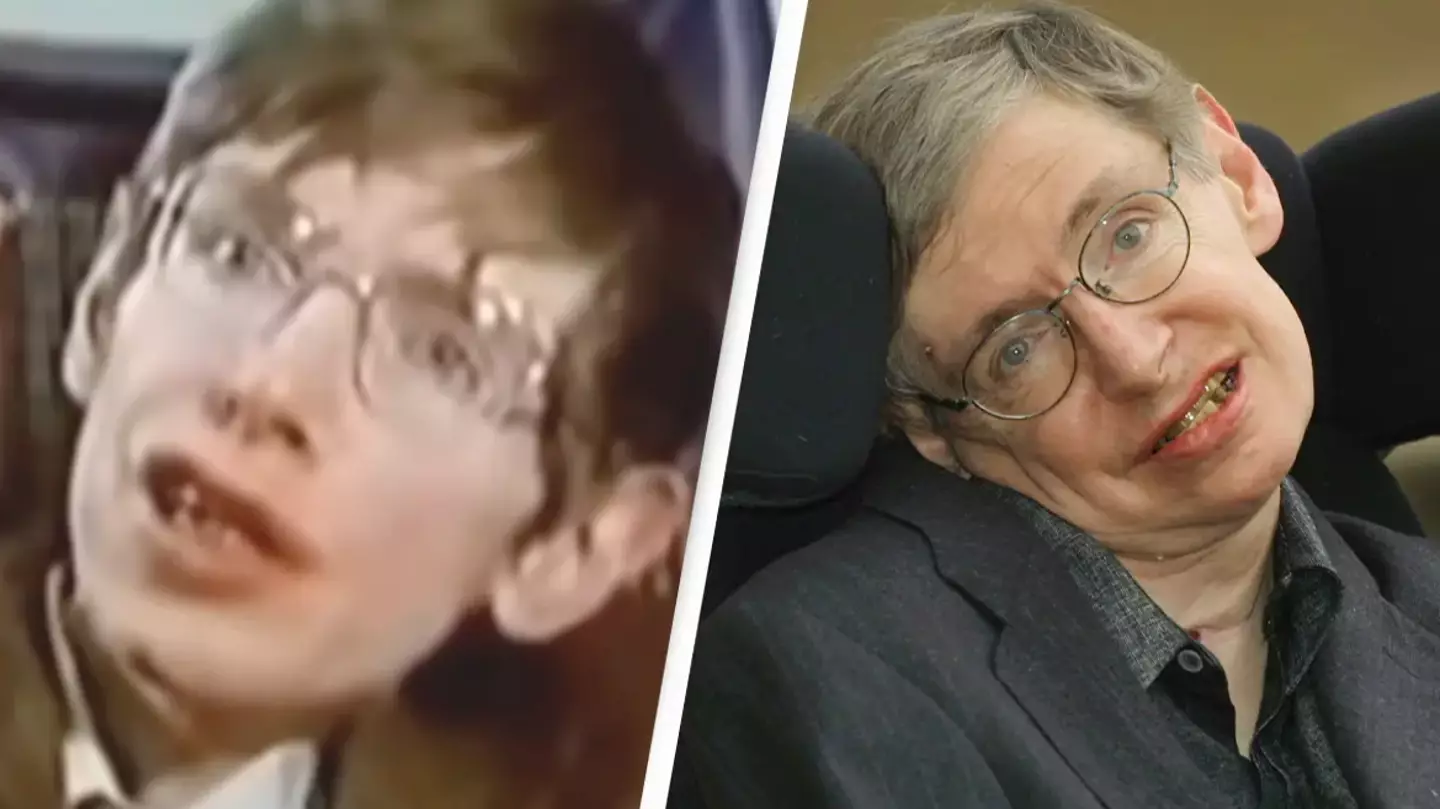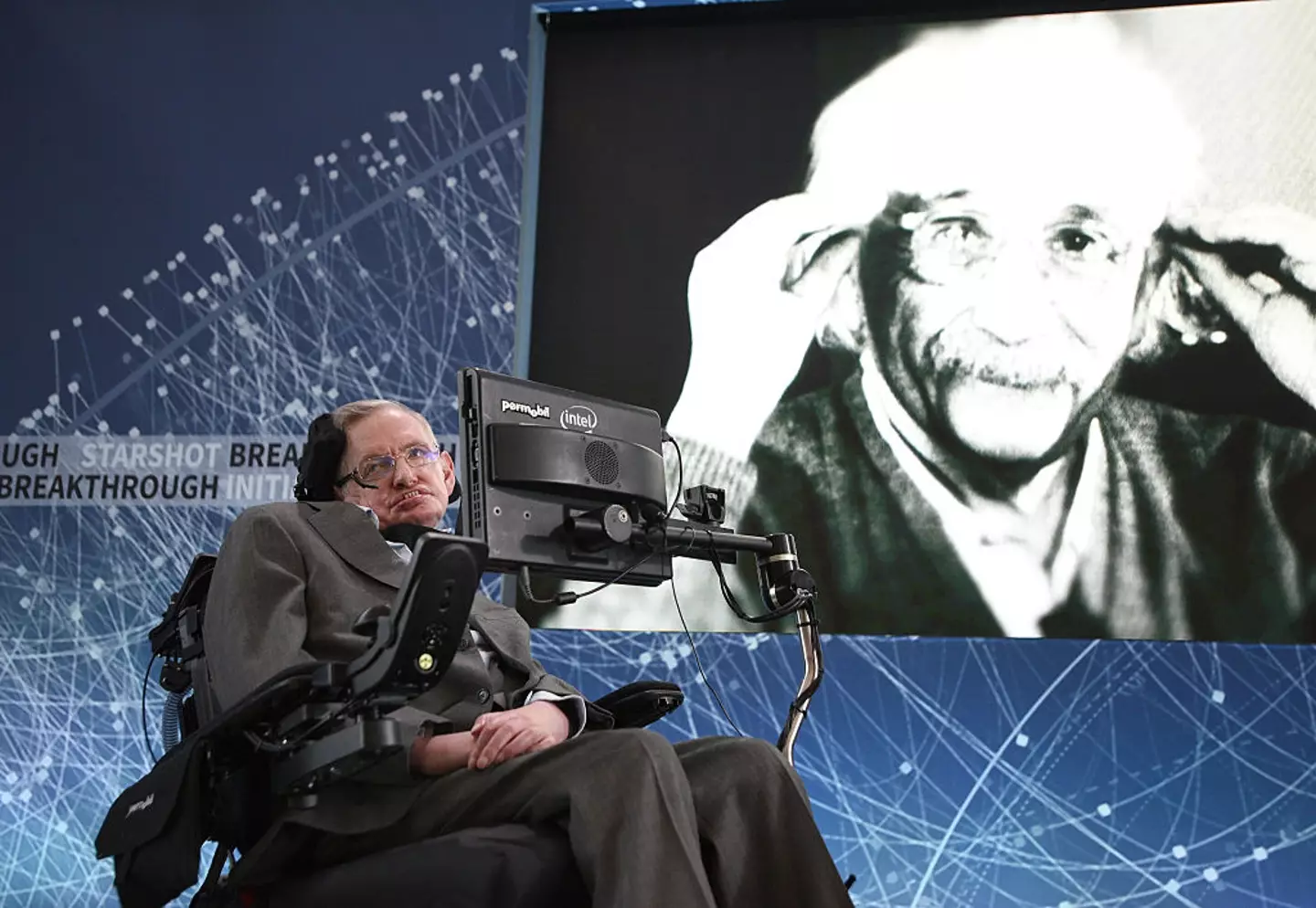
Professor Stephen Hawking was well-known for his voice synthesizer that helped him articulate his brilliant thoughts, but fans of the late physicist have been wowed by footage that has resurfaced featuring his original voice.
The British cosmologist was diagnosed with Motor Neurone Disease back in 1963, and a clip from the 1984 documentary for CBC’s Man Alive series titled ‘Stephen Hawking’s Universe’ - a time when he didn't yet use the synthesizer - has gone viral. Take a look:
This was before he underwent a tracheotomy back in 1985, which meant he lost the ability to verbalise altogether. His speech was already deteriorating at this point, and was becoming harder to understand,
In the shared video, Hawking is seen talking about a mind-blowing theory as someone next to him repeats his words due to the MND causing him to slur.
Advert
"We all came out of singularity," he said. "The big bang singularity, at the beginning of the universe.
"So it would not be that unnatural if we all ended up in another singularity."
After seeing the footage online, one fan wrote: "His mind was so brilliant that even his body couldn't keep pace with it."

Advert
Another drilled into his theory further, saying: "He's talking about the initial singularity... He's saying that we're all going back to a singularity meaning that in a gazillion years we're all gonna be... non existent. Which isn't relevant, The point is knowing how and why you and I were here."
One Twitter user wrote: "I always wondered if there was any surviving footage of his natural voice, so thank you for uploading this. What a fascinating find!"
"I am just shocked on how the interpreters were able to understand him."
On his official website, the theory states: "At this time, the Big Bang, all the matter in the universe, would have been on top of itself. The density would have been infinite. It would have been what is called, a singularity. At a singularity, all the laws of physics would have broken down.
Advert
"This means that the state of the universe, after the Big Bang, will not depend on anything that may have happened before."
It continued: "The no boundary hypothesis also predicts that the universe will eventually collapse again. However, the contracting phase, will not have the opposite arrow of time, to the expanding phase. So we will keep on getting older, and we won't return to our youth."

Hawking was born January 8, 1942 in Oxford and was the eldest of four children, and went on to have three children of his own; Lucy Hawking, Robert Hawking and Timothy Hawking.
Advert
Before his death in 2018, Hawking was held in high regard for his theories around black holes and relativity.
Later in life as technology advanced, it was reported that he was offered a different English accent for his synthesizer, with a more modern sound.
He refused though, as he felt the original synthesizer voice was now 'his' voice and an important part of his identity and how he was recognised, and had become an iconic part of his work.
Hawking preferred the familiarity of the American synthesizer voice, which was originally developed in the 80s, and was modelled on the voice of inventor and creator Dennis Klatt.
Topics: Science, History, Social Media, Technology, Health